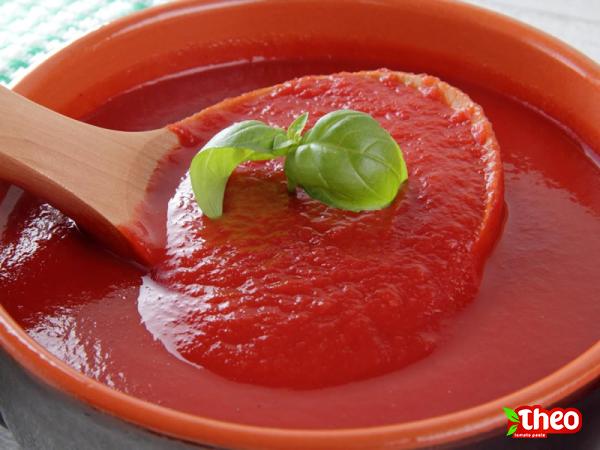The Purchase Price of Tomato Paste Ketchup: Properties, Advantages, and Disadvantages Introduction: Tomato paste ketchup, commonly known as tomato ketchup, is a popular condiment that adds rich flavor to a wide range of dishes. It is made from tomato paste, vinegar, sugar, and various spices. Before delving into the purchase price of tomato paste ketchup, it is important to understand its properties, advantages, and disadvantages. This summary aims to provide an overview of these aspects. Properties of Tomato Paste Ketchup: 1. Flavor: Tomato paste ketchup has a tangy and slightly sweet flavor that enhances the taste of various dishes. The blend of spices and vinegar adds depth and complexity to its profile. 2. Versatility: Tomato paste ketchup is widely used as a dipping sauce, a condiment for burgers and hot dogs, and a base for various sauces and marinades. 3. Texture: The consistency of tomato paste ketchup is smooth and thick, making it easy to spread or drizzle over food. Advantages of Tomato Paste Ketchup: 1. Convenience: One of the major advantages of tomato paste ketchup is its convenience. It can be easily purchased from grocery stores and supermarkets, eliminating the need for elaborate homemade preparations. 2. Extended Shelf Life: Tomato paste ketchup has a relatively long shelf life when compared to fresh tomatoes. Properly stored, it can last for several months without sacrificing its quality. 3. Nutritional Value: Tomato paste ketchup contains essential vitamins such as vitamin A, C, and K. It is also a good source of lycopene, an antioxidant known for its potential health benefits. 4. Cost-Effective: In general, tomato paste ketchup is an affordable condiment that offers a good value for money. It allows users to add flavor to their dishes without breaking the bank.
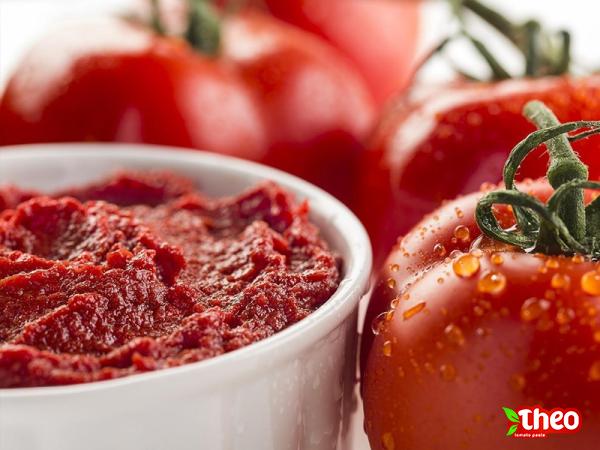
tomato paste
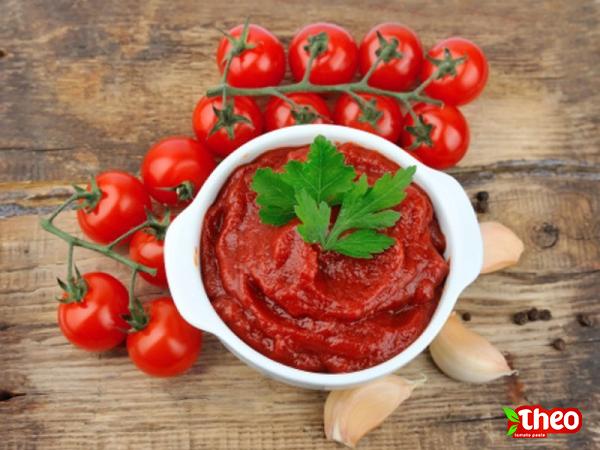 Disadvantages of Tomato Paste Ketchup: 1. Added Sugar and Preservatives: Some brands of tomato paste ketchup might contain high amounts of added sugar and preservatives. These additives can be detrimental to individuals with specific dietary requirements, such as diabetics or those aiming to reduce sugar intake. 2. High Sodium Content: Many commercially available tomato paste ketchups are high in sodium, which can contribute to health issues such as high blood pressure. It is important to check the nutrition label and choose low-sodium options if necessary. 3. Potential for Artificial Ingredients: While some tomato paste ketchup brands focus on natural ingredients, others may contain artificial additives and flavors. Consumers who prefer a cleaner label should be conscious of the ingredient list and opt for organic or all-natural varieties. Factors Influencing the Purchase Price of Tomato Paste Ketchup: 1. Brand Reputation: Established and well-known brands often come with a higher price tag due to their reputation for quality and reliability. These brands may invest in superior ingredients and undergo rigorous quality control processes. 2. Production Methods: Tomato paste ketchup that is made using traditional and artisanal methods might have a higher purchase price compared to mass-produced counterparts. The time and effort invested in small-batch production can reflect in the final cost. 3. Organic or All-Natural Certification: Tomato paste ketchup with organic or all-natural certifications generally commands a premium price due to the higher production standards and the use of healthier ingredients free from pesticides or genetically modified organisms (GMOs). 4. Packaging and Bottling: The type of packaging and bottle used can also impact the purchase price. Upscale and stylish packaging, such as glass bottles or premium designs, may contribute to a higher price point.
Disadvantages of Tomato Paste Ketchup: 1. Added Sugar and Preservatives: Some brands of tomato paste ketchup might contain high amounts of added sugar and preservatives. These additives can be detrimental to individuals with specific dietary requirements, such as diabetics or those aiming to reduce sugar intake. 2. High Sodium Content: Many commercially available tomato paste ketchups are high in sodium, which can contribute to health issues such as high blood pressure. It is important to check the nutrition label and choose low-sodium options if necessary. 3. Potential for Artificial Ingredients: While some tomato paste ketchup brands focus on natural ingredients, others may contain artificial additives and flavors. Consumers who prefer a cleaner label should be conscious of the ingredient list and opt for organic or all-natural varieties. Factors Influencing the Purchase Price of Tomato Paste Ketchup: 1. Brand Reputation: Established and well-known brands often come with a higher price tag due to their reputation for quality and reliability. These brands may invest in superior ingredients and undergo rigorous quality control processes. 2. Production Methods: Tomato paste ketchup that is made using traditional and artisanal methods might have a higher purchase price compared to mass-produced counterparts. The time and effort invested in small-batch production can reflect in the final cost. 3. Organic or All-Natural Certification: Tomato paste ketchup with organic or all-natural certifications generally commands a premium price due to the higher production standards and the use of healthier ingredients free from pesticides or genetically modified organisms (GMOs). 4. Packaging and Bottling: The type of packaging and bottle used can also impact the purchase price. Upscale and stylish packaging, such as glass bottles or premium designs, may contribute to a higher price point.
Specifications of tomato paste
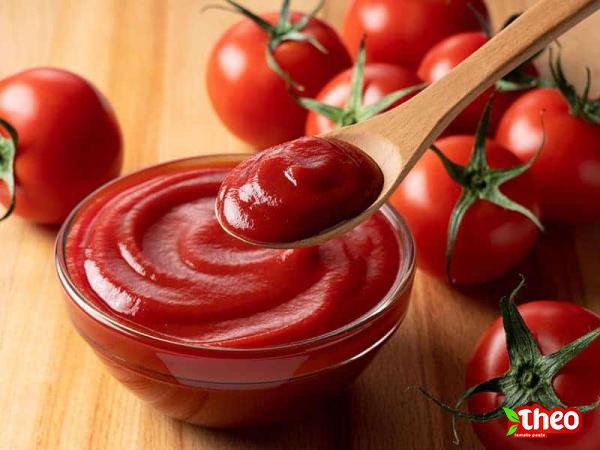 Conclusion: Tomato paste ketchup is a versatile and popular condiment that enhances the flavor of various dishes. It offers convenience, extended shelf life, and nutritional benefits, making it a preferred choice for many consumers. However, potential drawbacks such as added sugars, high sodium content, and the use of artificial ingredients should be taken into consideration. The purchase price of tomato paste ketchup varies based on factors such as brand reputation, production methods, certification, and the type of packaging. It is important for consumers to evaluate their preferences, dietary requirements, and budget constraints before making a purchase.The Purchase Price of Tomato Paste Ketchup: Factors Influencing Business Decisions 1. Market Trends and Demand: One of the key factors that influence the purchase price of tomato paste ketchup is market trends and demand. If the demand for tomato paste ketchup is high and there are limited suppliers, the price is likely to increase. Likewise, if there is an oversupply of tomato paste ketchup in the market, the price may decrease as suppliers try to stimulate demand. 2. Cost of Raw Materials: The cost of raw materials, particularly tomatoes, impacts the purchase price of tomato paste ketchup. Tomato prices are subject to various factors such as weather conditions, crop quality, and availability. Fluctuations in tomato prices can directly affect the overall production cost, which may then be passed on to the consumer. 3. Production and Processing Costs: The process of manufacturing tomato paste ketchup involves various stages such as harvesting, processing, packaging, and distribution. Each of these stages incurs costs, including labor, equipment, transportation, and storage. These costs, along with other overhead expenses, are factored into the purchase price. 4. Packaging and Labeling: Packaging plays a significant role in the purchase price of tomato paste ketchup. The type of packaging, such as glass bottles, squeeze bottles, or sachets, impacts the cost of materials and production. High-quality packaging may add value and justify a higher price point, while more cost-effective packaging options may result in a lower purchase price.
Conclusion: Tomato paste ketchup is a versatile and popular condiment that enhances the flavor of various dishes. It offers convenience, extended shelf life, and nutritional benefits, making it a preferred choice for many consumers. However, potential drawbacks such as added sugars, high sodium content, and the use of artificial ingredients should be taken into consideration. The purchase price of tomato paste ketchup varies based on factors such as brand reputation, production methods, certification, and the type of packaging. It is important for consumers to evaluate their preferences, dietary requirements, and budget constraints before making a purchase.The Purchase Price of Tomato Paste Ketchup: Factors Influencing Business Decisions 1. Market Trends and Demand: One of the key factors that influence the purchase price of tomato paste ketchup is market trends and demand. If the demand for tomato paste ketchup is high and there are limited suppliers, the price is likely to increase. Likewise, if there is an oversupply of tomato paste ketchup in the market, the price may decrease as suppliers try to stimulate demand. 2. Cost of Raw Materials: The cost of raw materials, particularly tomatoes, impacts the purchase price of tomato paste ketchup. Tomato prices are subject to various factors such as weather conditions, crop quality, and availability. Fluctuations in tomato prices can directly affect the overall production cost, which may then be passed on to the consumer. 3. Production and Processing Costs: The process of manufacturing tomato paste ketchup involves various stages such as harvesting, processing, packaging, and distribution. Each of these stages incurs costs, including labor, equipment, transportation, and storage. These costs, along with other overhead expenses, are factored into the purchase price. 4. Packaging and Labeling: Packaging plays a significant role in the purchase price of tomato paste ketchup. The type of packaging, such as glass bottles, squeeze bottles, or sachets, impacts the cost of materials and production. High-quality packaging may add value and justify a higher price point, while more cost-effective packaging options may result in a lower purchase price.
buy tomato paste
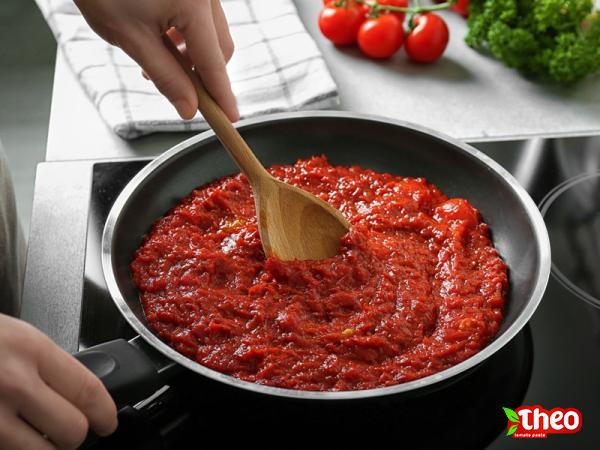 5. Branding and Marketing: Branding and marketing efforts employed by tomato paste ketchup manufacturers also contribute to the purchase price. Well-established brands often invest heavily in advertising, promotions, and endorsements, which can increase production costs. These additional expenses may be reflected in the final price. 6. Distribution and Supply Chain: The distribution and supply chain logistics have a direct impact on the purchase price. Transporting tomato paste ketchup from the manufacturing facilities to retailers or distributors incurs expenses such as transportation costs, storage fees, and handling charges. These costs are usually factored into the purchase price to ensure profitability. 7. Competition in the Market: The level of competition within the tomato paste ketchup market influences the purchase price. If there are numerous brands and suppliers competing for market share, this creates price pressure, resulting in competitive pricing strategies. On the other hand, limited competition can allow suppliers to set higher prices. 8. Economic Factors: Macroeconomic factors, such as inflation rates, exchange rates, and economic stability, can impact the purchase price of tomato paste ketchup. Inflationary pressures may increase production costs, leading to a higher retail price. Currency fluctuations can also affect the costs of imported ingredients and packaging materials. 9. Manufacturing Scale and Efficiency: The scale of production and manufacturing efficiency can impact the purchase price of tomato paste ketchup. Larger manufacturers with economies of scale may have lower production costs, allowing them to offer more competitive prices. Efficient production processes can also help reduce costs and optimize profitability. 10. Seasonality and Harvesting Period: The seasonality of tomato harvest can influence the purchase price. If tomatoes are only available during specific months, there may be a higher demand during that period, which can drive up prices. Conversely, when tomatoes are in abundance, prices may fall due to oversupply. 11. Government Regulations and Taxes: Government regulations and taxes can impact the purchase price of tomato paste ketchup. Legislation related to food safety, labeling, and packaging requirements may necessitate additional investments and compliance costs, which could be reflected in the price. Similarly, taxes and import/export duties may increase the overall cost of production. 12. Consumer Perception and Quality: Consumer perception of the quality and value of tomato paste ketchup can influence the purchase price. Brands that are perceived as premium or high-quality often command higher prices. Consumers are willing to pay more for products they perceive as superior in terms of taste, ingredients, and overall quality. Conclusion: The purchase price of tomato paste ketchup is determined by a multitude of factors, including market trends, raw material costs, production and processing expenses, packaging choices, branding efforts, distribution logistics, competition, economic factors, manufacturing scale, seasonal availability, government regulations, and consumer perception. Understanding these influences can provide valuable insights for businesses operating in the tomato paste ketchup industry, helping them make informed decisions regarding pricing strategies and ensuring sustainable profitability.
5. Branding and Marketing: Branding and marketing efforts employed by tomato paste ketchup manufacturers also contribute to the purchase price. Well-established brands often invest heavily in advertising, promotions, and endorsements, which can increase production costs. These additional expenses may be reflected in the final price. 6. Distribution and Supply Chain: The distribution and supply chain logistics have a direct impact on the purchase price. Transporting tomato paste ketchup from the manufacturing facilities to retailers or distributors incurs expenses such as transportation costs, storage fees, and handling charges. These costs are usually factored into the purchase price to ensure profitability. 7. Competition in the Market: The level of competition within the tomato paste ketchup market influences the purchase price. If there are numerous brands and suppliers competing for market share, this creates price pressure, resulting in competitive pricing strategies. On the other hand, limited competition can allow suppliers to set higher prices. 8. Economic Factors: Macroeconomic factors, such as inflation rates, exchange rates, and economic stability, can impact the purchase price of tomato paste ketchup. Inflationary pressures may increase production costs, leading to a higher retail price. Currency fluctuations can also affect the costs of imported ingredients and packaging materials. 9. Manufacturing Scale and Efficiency: The scale of production and manufacturing efficiency can impact the purchase price of tomato paste ketchup. Larger manufacturers with economies of scale may have lower production costs, allowing them to offer more competitive prices. Efficient production processes can also help reduce costs and optimize profitability. 10. Seasonality and Harvesting Period: The seasonality of tomato harvest can influence the purchase price. If tomatoes are only available during specific months, there may be a higher demand during that period, which can drive up prices. Conversely, when tomatoes are in abundance, prices may fall due to oversupply. 11. Government Regulations and Taxes: Government regulations and taxes can impact the purchase price of tomato paste ketchup. Legislation related to food safety, labeling, and packaging requirements may necessitate additional investments and compliance costs, which could be reflected in the price. Similarly, taxes and import/export duties may increase the overall cost of production. 12. Consumer Perception and Quality: Consumer perception of the quality and value of tomato paste ketchup can influence the purchase price. Brands that are perceived as premium or high-quality often command higher prices. Consumers are willing to pay more for products they perceive as superior in terms of taste, ingredients, and overall quality. Conclusion: The purchase price of tomato paste ketchup is determined by a multitude of factors, including market trends, raw material costs, production and processing expenses, packaging choices, branding efforts, distribution logistics, competition, economic factors, manufacturing scale, seasonal availability, government regulations, and consumer perception. Understanding these influences can provide valuable insights for businesses operating in the tomato paste ketchup industry, helping them make informed decisions regarding pricing strategies and ensuring sustainable profitability.




